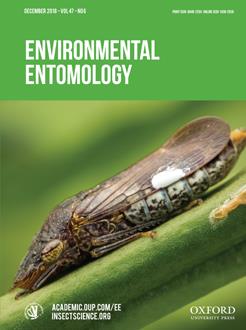This study aimed to determine the suitability of several organic waste substrates to be processed by the larvae of the black soldier fly, Hermetia illucens (L.) (Diptera: Stratiomyidae) (BSFL) in a value-added bioconversion system. Three types of organic waste (brewer's waste, solid phase of pig manure, and semidigested grass) were tested and compared with a standard larval diet, broll (wheat middling). Larval survival and growth, chemical composition of the resulting prepupae, conversion ratios of nutrients and waste dry matter, and waste reduction rate were measured. Larval survival was high in all tested substrates. Compared with the larvae fed pig manure or semidigested grass, those fed standard diet or brewer's waste showed shorter development time, higher weight gain, and higher prepupal crude protein and crude fat content. BSFL also reduce more dry matter in the standard diet or in brewer's waste than in the other two substrates. On the other hand, larvae fed semidigested grass took 70 d to complete development and suffered fat loss. Thus, we suggest that brewer's waste is the most suitable substrate among the selected wastes for being processed by BSFL, whereas semidigested grass is an unsuitable substrate. We found that lignin had a significantly negative effect on larval growth, and emphasized the importance of applying lignindigesting microorganisms to lignin-rich substrates being converted by BSFL. Moreover, a protein:fat:digestible carbohydrate ratio of 2:1:2 was hypothesized to benefit larval development.
BioOne.org will be down briefly for maintenance on 17 December 2024 between 18:00-22:00 Pacific Time US. We apologize for any inconvenience.
How to translate text using browser tools
26 October 2018
Bioconversion of Three Organic Wastes by Black Soldier Fly (Diptera: Stratiomyidae) Larvae
Zhongyi Liu,
Maria Minor,
Patrick C. H. Morel,
Adriana J. Najar-Rodriguez
ACCESS THE FULL ARTICLE
It is not available for individual sale.
This article is only available to subscribers.
It is not available for individual sale.
It is not available for individual sale.

Environmental Entomology
Vol. 47 • No. 6
December 2018
Vol. 47 • No. 6
December 2018
black soldier fly
larval development
lignin
nutritional composition
organic waste bioconversion





